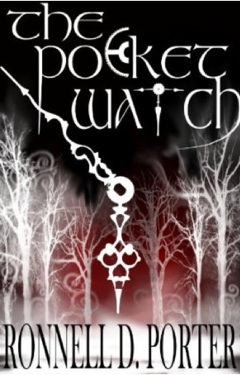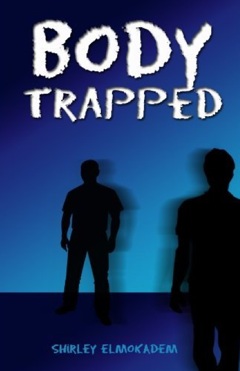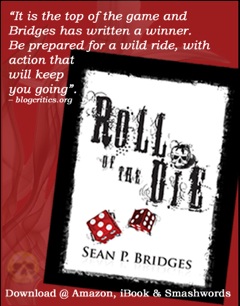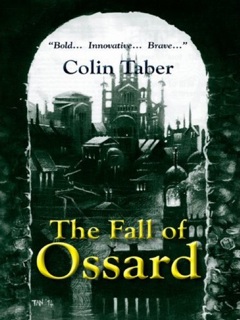I’ll get back to e-pub chit chat highly informative blog posts on e-publishing after the holiday weekend, but I thought I’d share a little snippet from my latest project today. I just sent the story off to beta readers, so this is rough and unedited, but here’s a little fantasy fun from the follow-up to Flash Gold, a steampunk adventure set in the Yukon during the gold rush era:
*The “SAB” is one of Kali’s latest inventions, a steam-powered “self-automated bicycle.”
Hounded Excerpt
“There’s the SAB!” Kali blurted, relieved when it came into sight.
She kept herself from running over to check it. The tracks led straight toward it. She and Cedar stepped carefully, checking for more booby traps on the ground. They found nothing more treacherous than a pile of bear dung, but Kali lingered a few feet from her vehicle without going close enough to touch it.
“Let’s be optimistic,” she finally said. “Maybe she knew we were after her and went straight through.” She pointed to the tracks, which continued past the bicycle and back down the road she and Cedar had followed up the river. It made sense that the woman would need to return to town to have her wound treated.
“She stopped here.” Cedar pointed to the ground next to the bicycle. “The tracks are deeper where the vehicle came to rest.”
“I better take a look.” Kali spent the next fifteen minutes inspecting the SAB. She checked all the spots she would booby trap if her goal were to incapacitate someone’s steam vehicle.
Cedar spent the time leaning against a tree, his arms folded. “Shall I set up camp?” he asked at one point.
“No, but I wouldn’t mind something to eat if you’re offering,” Kali said, her voice echoing oddly since she had it stuck in the furnace. The fire had burned out while she and Cedar were roaming the hills. When he did not respond to her comment, she withdrew her head and looked at him. “Oh, was that sarcasm?”
His eyebrow twitched. “Possibly.”
He had to be getting impatient with this side trip. Might he be wondering why he had bothered to take her along? Aside from providing a mode of transport, what had she done to assist him? Even the transportation was of dubious worth. He would be closer to Wilder’s claim by now if he had walked up the trail.
Maybe they would catch this woman and find out she was some sort of super villain with a huge bounty on her head, and that would make this detour worthwhile.
Kali climbed on top of the SAB seat. Though the bicycle was a broad, sturdy contraption, it wobbled under her weight, and she kept a hand on the smokestack for balance. She peered inside it. And froze.
“What the blazes is that?”
“What?” Cedar strode over.
A black device similar to the ones on the trail nestled inside the smokestack—far inside the smokestack. Kali swiped a hand toward it and missed it by a foot. Her own body blocked the daylight when she leaned in farther, so she could not tell what she was dealing with. Another booby trap, presumably.
“I need help,” she said. “Can you hold me, so I can lean in farther?” She must sound ridiculous with her head stuffed in the smokestack.
Hands squeezed her waist, and she squawked when Cedar lifted her off the seat so her feet dangled in the air. His firm grip had the steadiness of steel, though, and she soon realized she was more secure than when she had been relying on her own balance. Thanks to his height, Cedar could also boost her entire body above the smokestack without trouble.
“Thanks,” she called, her voice supremely muffled now. “I appreciate your strength and—” She inhaled soot and broke into a coughing fit. The stuffy, hot environs pressed in from all sides, and she could see nothing. Lingering smoke made her eyes tear.
“My strength and what?” Cedar asked, his voice distant to her ensconced ears.
When she tried to speak, she ended up coughing again.
“Ah,” Cedar said. “I’m to guess at the rest. I see. You appreciate my strength and…masculinity?”
The confines of the smokestack made movement awkward. Kali had to wriggle and twist to loosen a shoulder enough to extend her arm. Her fingers brushed against the obstruction. Cold and smooth, it did not tick or whir or do anything to suggest moving parts or a timer that would cause an explosion to occur at a set moment.
“Strength and virility?” Cedar asked.
Kali felt around the edges of the device, hoping she could remove it to examine in the light, but something lumpy filled the cracks. Whatever it was had solidified and was doing a good job of holding the object immobile. She scraped a sliver off and held it to her nose. Though the sooty smokestack made it hard to put her olfactory organs to satisfactory use, the gunk had a pungent identifiable scent. She groaned.
“No? Strength and good looks?”
“Pull me out,” Kali said.
“Not until you finish that sentence.”
“What?” She had barely been paying attention to him.
“You appreciate my strength and what else?” Even though the smokestack dulled the nuances of his tone, she had no trouble imagining the amused smirk on his lips. Better than the sarcasm, she supposed.
“Strength and willingness to grab my butt and hold me aloft,” Kali said. “Now get me down.”
“Hm, I doubt that’s a trait unique to myself.” Cedar lifted her free of the smokestack and lowered her to the ground. The smirk she had anticipated rode his lips, and it transformed into a full-fledged grin when he got a good look at her. “You look like one of the black gang on a steamship.”
“What?” Kali wiped her face. Her already sooty sleeve grew sootier. “Ugh. I’m losing my love for this woman. She’s starting to vex me.”
* * *
Thanks for checking out the excerpt! It’ll be a few weeks before the story is ready to go, but if you haven’t read Flash Gold yet, you can grab it for 99 cents at Amazon | Barnes & Noble | Smashwords.

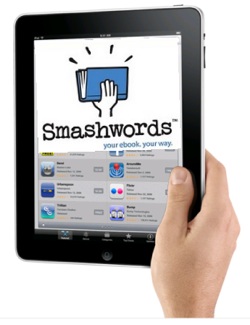 If you’re like many indie authors, you’d like to sell ebooks through Smashwords since there are quite a few perks:
If you’re like many indie authors, you’d like to sell ebooks through Smashwords since there are quite a few perks:
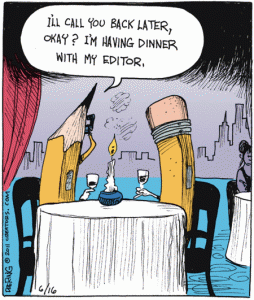
 I’ve been contemplating a post on time management for authors (I know, scintillating summer reading), but I thought I’d define a couple of book-promotion ideas first so I can reference them in the later post. The ideas are high and low level promotion techniques. I made those terms up myself, so no need to head to wikipedia.
I’ve been contemplating a post on time management for authors (I know, scintillating summer reading), but I thought I’d define a couple of book-promotion ideas first so I can reference them in the later post. The ideas are high and low level promotion techniques. I made those terms up myself, so no need to head to wikipedia.